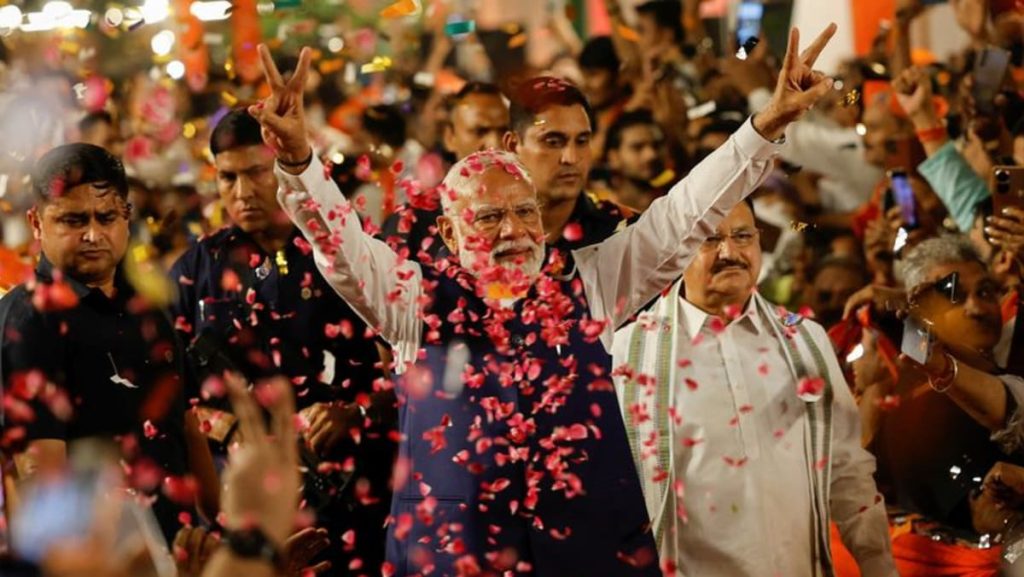Japan congratulated Prime Minister Narendra Modi’s ruling alliance on their victory in India’s general election, emphasizing India’s importance as a partner for a free and open Indo-Pacific. This comes as commentators predicted an overwhelming victory for Modi, although his party lost its parliamentary majority for the first time in a decade. Despite concerns about rising authoritarianism, Modi has been courted by the United States and European nations as a counterweight to China. Japan and India are both part of the “Quad” grouping, along with the United States and Australia. Modi also attended the G7 summit in Hiroshima last year, demonstrating India’s growing international influence.
The relationship between Japan and India has strengthened in recent years, with both countries collaborating on various economic and strategic initiatives. Japan sees India as a key partner in promoting stability and economic growth in the region, particularly given China’s increasing assertiveness. The “Quad” grouping, which aims to promote a rules-based order in the Indo-Pacific, has become a platform for cooperation between Japan and India, as well as the United States and Australia. India’s growing influence has also led to its participation in international forums such as the G7 summit, where Modi attended despite India not being a member.
Modi’s victory in India’s general election has significant implications for regional dynamics, as his leadership is seen as crucial in countering China’s influence in the region. Despite his party losing its parliamentary majority, Modi remains a key player in international politics and has attracted the attention of major powers such as the United States and Europe. Japan’s congratulatory message to Modi reflects the importance of the Japan-India relationship in the broader context of regional security and economic development. As India continues to assert itself on the global stage, its partnerships with countries like Japan will play a crucial role in shaping the future of the Indo-Pacific region.
The growing convergence of interests between Japan and India in the Indo-Pacific region is driven by shared concerns about regional security and the rise of China. Both countries have expressed a commitment to upholding a rules-based order and promoting economic development in the region. Japan’s strategic partnership with India is based on mutual interests, including maritime security, infrastructure development, and economic cooperation. As India’s influence continues to grow, its relationship with Japan will likely deepen, leading to greater collaboration on regional and international issues.
Modi’s attendance at the G7 summit in Hiroshima last year highlighted India’s increasing role on the global stage and its relationship with Japan. Despite not being a member of the G7, Modi’s presence at the summit underscored India’s growing international influence and its partnership with major powers like Japan. The congratulatory message from Japan to Modi on his election victory reflects the positive trajectory of the Japan-India relationship and the mutual respect between the two countries. As India asserts itself as a key player in regional and international affairs, its partnership with Japan will continue to be a linchpin in shaping the future of the Indo-Pacific region.
In conclusion, Japan’s congratulatory message to Prime Minister Modi on his election victory underscores the importance of the Japan-India relationship in promoting regional security and economic growth in the Indo-Pacific. The partnership between Japan and India is based on shared interests and values, including a commitment to upholding a rules-based order and countering the rise of China in the region. As India’s influence grows, its collaboration with countries like Japan will be crucial in shaping the future of the Indo-Pacific and addressing key challenges in the region. Modi’s leadership role on the global stage and India’s growing international profile highlight the significance of the Japan-India partnership in advancing shared objectives and promoting peace and prosperity in the region.


